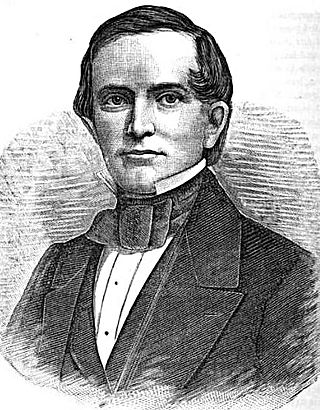Top Qs
Timeline
Chat
Perspective
James Dixon Roman
American politician (1809–1867) From Wikipedia, the free encyclopedia
Remove ads
James Dixon Roman (August 11, 1809 – January 19, 1867) was an American politician.[1]
Remove ads
Early life
Born in Chester County, Pennsylvania, Roman attended the common schools and a private school at West Nottingham (now Nottingham, Pennsylvania). He later moved to Cecil County, Maryland, and began to study law in Frederick. He was admitted to the bar in 1834 and commenced practice in Hagerstown.[2]
Career

Roman served as a member of the Maryland State Senate in 1847 and was elected as a Whig to the Thirtieth Congress, serving from March 4, 1847, to March 3, 1849. He was presidential elector on the Whig ticket in 1848 and on the Democratic ticket in 1856.[2]
He again resumed the practice of law in Hagerstown, and served as president of the Old Hagerstown Bank from 1851 until his death. He was also a member of the peace convention held in Washington, D.C., in 1861 in an effort to devise means to prevent the impending war.[2]
Remove ads
Personal life
Roman was married to Louisa Margaret Kennedy (1809–1878), the daughter of John Kennedy and Margaret (née Wagner) Kennedy.[3] Together, they were the parents of:[4]
- Louisa Kennedy Roman, who died young.
- Sarah "Sallie" Roman (1843–1873), who married Christopher Columbus Baldwin, the Naval Officer of the Port of New York.[5][6]
- James Dixon Roman (1854–1875), who died unmarried shortly after finishing his junior year at Harvard University.
Roman died on January 19, 1867, near Hagerstown, Maryland, and is interred in Rose Hill Cemetery.[2]
References
External links
Wikiwand - on
Seamless Wikipedia browsing. On steroids.
Remove ads

